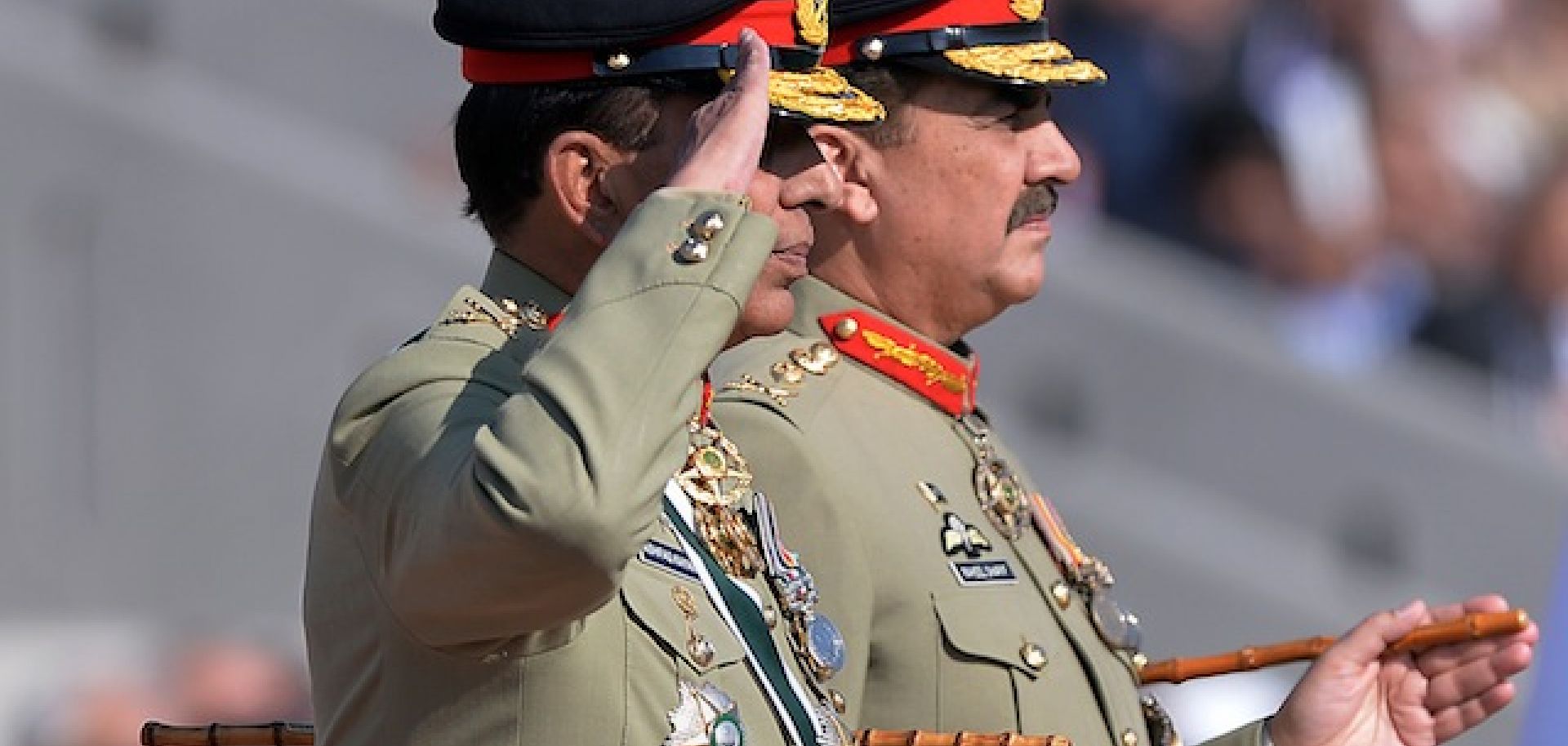ASSESSMENTS
Pakistan's Civil-Military Balance Under a New Army Chief
Dec 4, 2013 | 11:03 GMT

(AAMIR QURESHI/AFP/Getty Images)
Summary
As a new army chief takes over in Pakistan, there are positive signs for the future of the country's civil-military relationship but there are also many potential problems. Recently elected Pakistani Prime Minister Nawaz Sharif met with newly appointed army chief Gen. Raheel Sharif in Islamabad on Dec. 3. Raheel Sharif assumed the role after Gen. Ashfaq Kayani stepped down after a six-year stint, during which he played a critical role in facilitating the transition toward democratic rule. Nawaz Sharif recently appointed both the new chief of the army staff and the chairman of the Joint Chiefs of Staff Committee, Gen. Rashad Mahmood.
The prime minister's decision to appoint Raheel Sharif as army chief was primarily driven by the need to bring the army under greater civilian control. While Nawaz Sharif needs the top general to subordinate himself to the civilian government, he also needs a capable army chief at a time when the country is fighting a war against Taliban rebels and bracing from the fallout of the NATO drawdown in neighboring Afghanistan. For the most part, the prime minister and army chief are likely to get along. However, the issue of cross-border Taliban activity has the potential to create friction between the government and the army.
Subscribe Now
SubscribeAlready have an account?
